
Warning: Creating default object from empty value in /var/www/vhosts/krccima.ir/en.krccima.ir/components/com_k2/views/itemlist/view.html.php on line 743
Iran National Chickpea Council
Introduction of Iran National Chickpea Council
Kermanshah is one of the most important chickpea producers in the country and, according to the Ministry of Agriculture Jihad statistics, ranks first in terms of production of the product as well as its cultivation surface area. Therefore, in the year 2006, a union called Chickpea Exporters Union was formed in Kermanshah Province and during the past 6 years it was active as a provincial union. However, because of the strategic importance of this product, the necessity of a national institution for the protection of the production, processing, trade, and export of chickpea was obvious.
For this purpose, and after plenty of meetings such as the minutes of proceedings of general assembly of the founders and the board of directors dated 2012 - 07 - 17, the Iran Chickpea Council under no.337 dated 2012 - 11 - 11 was registered and established in Iran Chamber of Commerce, Industries, Mines and Agriculture, and it was headquartered in Kermanshah Chamber of Commerce, Industries, Mines and Agriculture.
In the first meeting of the board of directors of the Iran National Chickpea Council dated 2012 - 07 - 17 in Kermanshah Chamber, with the presence of all members and signatories, the following decisions were adopted :
( Appointments )
Mr. Naser Moradi as the Chairman of the Council
Mr. Burhan Heidari as the Council's first Vice - President
Mr. Farzad Bavondpor as the second Vice - President of the Council,
Mr. Saman Heydari as the Inspector of the Council
Mr. Khalil Tanha as Treasurer of the Council
And Mr. Shahryar Bavondpor as Assistant Secretary of the Council.
Also, according to the approval dated 2012 - 08 - 26 of the board of directors of Iran Chamber, Mr. Keyvan Kashfi as representative of Iran Chamber is embedded in the board of directors of Iran National Chickpea Council. At present, this Council has about 70 members.
Duties and powers of the council under article 7 of the articles of association are as follows :
7 - 1 Attempting to organize domestic and foreign production and trade and consumption of chickpea and it products.
7 - 2 Global and domestic continuous marketing, identifying international markets, and informing about the global and domestic prices.
7 - 3 Teamwork in decision making and making decisions, and preparing the draft laws, regulations and legislation, related to the chickpea production and trades in order to maintain the financial interests of the members, to be presented to the three branches of government.
7 - 4 Establishing relationships with banks, credit organizations, domestic and overseas financial supports funds in the framework of the Islamic Republic's laws and paving the way to obtain financial credits and facilities fields towards development of the activities of its members.
7 - 5 Establishing an information bank in the fields related to the objectives and tasks of the council, domestic and overseas commercial and manufacturing activities of members, and publication of specialized books, magazines and brochures.
7 - 6 Activities towards absorption and participation of natural and legal persons who are eligible for membership in the Council.
7 - 7 Undertaking any educational, scientific and research activities within and outside the country within the framework of law to achieve the goals of the council.
7 - 8 Contribution to the realization of qualitative and quantitative objectives set for domestic and overseas production and trade of chickpea and its products.
7 - 9 Protecting common interests of the members.
7 - 10 Pursuing the demands of the members.
7 - 11 Providing advisory and legal services to the members.
7 - 12 Encouraging and supporting investment in domestic and overseas production and trade of its products.
7 - 13 Blocking unhealthy competition of members in domestic and foreign markets through applying the terms of Disciplinary Committee of Iran Chamber.
7 - 14 Monitoring the production process and improving the methods of cultivation, genetic modification, help fighting pests and quarantine affairs.
7 - 15 efforts to generate and nurture appropriate varieties for different regions of the country.
7 - 16 Attempting to reduce costs and the product’s cost price.
7 - 17 Identifying and introducing chickpea planting and harvesting machinery to facilitate current methods.
7 - 18 Trying to access global markets and to create the appropriate opportunities for coordination of the activities of the members.
7 - 19 Participation in the formulation of national and international standards
7 - 20 Attempting to resolve disputes between members and if required, through arbitration of Iran Arbitration Center.
7 - 21 Introducing the members to ministries and organizations to use the required services.
7 - 22 Providing the package and necessary mechanism to accept the government’s executive duties and assistance, that may be delegated to the council upon implementation of the general policy of article 44 of the Constitution.
7 - 23 Implementation of government’s executive tasks delegated to the council, including tasks such as representative or buying agent, etc.
7 - 24 Preparation of the council performance reports in 3 and 6 month intervals along with raising up executive problems and obstacles and submitting it to Iran Chamber.
7 - 25 Offering executive proposals to resolve the problems of production and trade and consumption and commodity group relevant to council’s activities, to institutions, ministries and other concerned bodies.
7 - 26 Holding training courses and conducting scientific, industrial and commercial research both inside and outside the country and holding specialized conferences.
7 - 27 Holding or attending exhibitions both inside and outside the country related to the functions and activities of the Council.
7 - 28 Attempting to attract domestic and overseas capital, technology, management, technical knowledge and skilled manpower for the development and promotion of activities of the Council.
7 - 29 Attempting to force the members towards sound implementation of economic regulations and respecting of the country’s commercial dignity, and the provisions of the articles of association and regulations of the council.
7 - 30 Communicating with reputable global scientific and academic centers for improvement of chickpea production and processing methods.
7 - 31 Establishing collaboration and coordination between producers and merchants and the owners of the chickpea - related industries and products derived from it.
7 - 32 Pursuing and planning in order to enable members take advantage of supportive policies and trade and commercial incentives.
7 - 33 Establishing relationships with policymakers and planners and trying to influence the planning and decisions and relevant rules and regulations to increase the benefits of contributing members and national interests.
7 - 34 Trying to provide insurance coverage for chickpea producers, industry owners, and traders against potential losses.
7 - 35 The necessary planning in order to create healthy competition for the price and quality of this products and byproducts.
7 - 36 Holding workshops to enhance the technical knowledge of producers, merchants and industry owners of the processing and packaging industries.
7 - 37 Providing the possibility of transfer of scientific and technical information and experience from overseas in the areas of processing, sorting and packaging.
7 - 38 Planning in order to increase the degree of chickpea mechanization with devices such as cultivating, picking and packing machinery.
7 - 39 Trying to hold national and international conferences in order to benefit from the opinions and convey the findings and support strategic research.
7 - 40 The formation of a fund to support production and trade as well as scientific activity in the field of chickpea.
7 - 41 Trying to introduce the National Chickpea Council to relevant international organizations and councils, and to make them recognize this entity as Iran’s official chickpea authority in the private sector.
7 - 42 Issuances of health and standard certification, for manufactured and exports products through competent and reputable laboratories, on behalf of concerned ministries and agencies in case of entrusting the authority.
7 - 43 Signing memorandum of understanding and entering into cooperation contracts with ministries and agencies and organizations and related to the objectives and functions of the council.
Arbitration & Dispute Resolution Commission
In arbitration committee, upon the general summon of Kermanshah Chamber of Commerce, Industries, Mines, and Agriculture, 17 economic activists of the province applied for membership and the first meeting of the committee was convened in the presence of them.
In the foregoing committee, the arenas of interests are: judicial assistance and support, arbitration center, dispute settlement. The purpose of convening this meeting is to find out weak and strength points of any of the foregoing arenas as well as finding some ideas for their developments in the province.
Of the corresponding organizations and bodies of this committee Kermanshah Justice Administration, Dispute Settlement Council and Arbitration Center can be instanced.
Tourism Commission
Upon the general summon of Kermanshah Chamber of Commerce, Industries, Mines, and Agriculture’s tourism committee, 27 economic activists of the province applied for membership and the first meeting of the committee was convened in the presence of them.
In the foregoing committee, the arenas of interests are: tourism services, health tourism, sport economics, art and history economics, tourism incentives, development of international and capital. The purpose of convening this meeting is to find out weak and strength points of any of the foregoing arenas as well as finding some ideas for their developments in the province.
Of the corresponding organizations and bodies of this committee Tourism and Handicraft Organization, Provincial Office of Ministry of Foreign Affairs, Islamic City Council, Environment Protection Department, Natural Resources Organization, Broadcasting Department of the Province, Economic Affairs Coordination Office of the Governorate General, Culture and Islamic Guidance Organization, Sports and Youth Organization and University of Medical Sciences can be instanced.
Investment Commission
In investment committee, upon the general summon of Kermanshah Chamber of Commerce, Industries, Mines, and Agriculture, 24 economic activists of the province applied for membership and the first meeting of the committee was convened in the presence of them.
In the foregoing committee, the arenas of interests are: incentives and advantages of investment in the province, special and free trade zones, investment impediments and capital market.
The purpose of convening this meeting is to find out weak and strength points of any of the foregoing arenas as well as finding some ideas for their developments in the province.
Of the corresponding organizations and bodies of this committee Islamic City Council, municipality, investment services center of the province, managing directors of economic special zones, municipalities, offices of Ministry of Foreign Affairs, Coordination Office of Economic Affairs of the Governorate General, Civil and Development Deputy of the Province, towns governorate generals, Stock Exchange Organization and relevant banks can be instanced.
Industry & Mine Commission
In industries and mine committee, upon the general summon of Kermanshah Chamber of Commerce, Industries, Mines, and Agriculture, 45 economic activists of the province applied for membership and the first meeting of the committee was convened in the presence of them.
In the foregoing committee, the arenas of interests are: support of small industries, marketing and advertisement, labor and social welfare, mine and mining industries, Chamber of Industry and University, taxes, industrial towns, environment, industry, mine and financing
The purpose of convening this meeting is to find out weak and strength points of any of the foregoing arenas as well as finding some ideas for their developments in the province.
Of the corresponding organizations and bodies of this committee Cooperation Organization, Labor and Social Welfare Organization of the Province, Social Welfare Organization, Environment Protection Organization, Industrial Towns Company of the Province, Economic and Finance Affairs Organization, Kermanshah Tax Affairs Directorate General, Industry, Mine and Commerce Organization, universities of the Province, relevant banks, Directorate General of Standard and Industrial Researches, Water, Gas and Electricity organizations, General Directorate of Registration of Deeds and Real Estates, Directors Special Economic Zones, Office for Cooridnation of Economic Affairs, Directorate General of Technovocational Training, Science and Technology Park and the Province Development Centers.
Agriculture Commission
In agriculture committee, upon the general summon of Kermanshah Chamber of Commerce, Industries, Mines, and Agriculture, 43 economic activists of the province applied for membership and the first meeting of the committee was convened in the presence of them.
In the foregoing committee, the arenas of interests are: plant breeding and horticulture, agricultural machineries and equipment, livestock, poultry, fisheries, social welfare; agricultural products export development, water, and draught, natural resources and environment, statistics and organization plan for agriculture.
The purpose of convening this meeting is to find out weak and strength points of any of the foregoing arenas as well as finding some ideas for their developments in the province.
Of the corresponding organizations and bodies of this committee Ministry of Agricultural Jihad Lands Affairs Department, Environment Protection Department, Natural Resources Organization, Directorate General of Veterinary, Agricultural Jihad Organization, relevant banks, Urban and Rural Development Office of Governorate General, Fisheries Organization, Cooperation Organization, Labor, Social Welfare Organization of the Province and Regional Water Organization can be instanced.
Commerce, Transportation & Transit Commission
In commerce and transportation committee, upon the general summon of Kermanshah Chamber of Commerce, Industries, Mines, and Agriculture, 49 economic activists of the province applied for membership and the first meeting of the committee was convened in the presence of them.
In the foregoing committee, the arenas of interests are: export development, terminal transportation, import and e-commerce, boundary markets, tax and financing. The purpose of convening this meeting is to find out weak and strength points of any of the foregoing arenas as well as finding some ideas for their developments in the province.
Of the corresponding organizations and bodies of this committee Industries, Mines and Commerce Organization, Custom Organization Municipalities, governorate general of boundary cities, office of ministry of foreign affairs in the province, general department of transportation and terminals, road and urban development general department, general director of oil products, Bank of Export Dvelopment, Passport and Immigration Office and Kermanshah Airport can be instanced.
|
Keyvan Kasehfi Position : Chairman Phone : +988338228131 and +988338228141 E - mail : k_kashefi@ krccima.ir |
 |
Holder of Political Sciences BSc. degree chairman of Kermanshah Chamber of Commerce for two terms chairman of the Kermanshah Chamber of Guilds for ten years secretary of the country’s Chamber of Guilds for four years. |
|
Nelson Hazrati First Vice President Phone : +988338228131 and +988338228141 E - mail : n.hazrati@ krccima.ir |
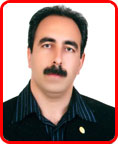 |
Managing director of Kermanshah Municipality Collaboration Organization Kermanshah dist.4 mayor General Secretary of Kermanshah Chamber of Commerce |
|
Jamshid Rostami Second Vice Chairman Phone +988338228131 and +988338228141 E - mail : j.rostami@ krccima.ir |
 |
Member of the sixth and seventh terms of council of representatives of Kermanshah Chamber Exemplary exporter for eight years Asim Tejarat Gharb Co. managing director |
|
Abdollah Sokhansanj Treasurer Phone : +988338228131 and +988338228141 E - mail : a.sokhansanj@ krccima.ir |
 |
Member of the of Kermanshah Chamber representatives, for 5 consecutive terms Gharb Plast Co. and Gharb Plasco Co. managing director Veteran industry craftsman |
|
Babak Torabi The clerk Phone :+988338228131 and +988338228141 E - mail : b.torabi@ krccima.ir |
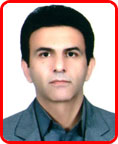 |
Member of the board of directors and treasurer of the marketing society of Iran Chamber of Commerce The managing director of staff to help prisoners of the province Farashir Paknam Co. managing director |
|
Mohammadaref Ebrahimi Member of the board of representatives Phone : +988338228131 and +988338228141 E - mail : m.ebrahimi@ krccima.ir |
 |
President of Kermanshah House of Mine Vice - president of Kermanshah Chamber of Commerce for 2 terms Seven years exemplary mine owner in the province |
|
Ebrahim Omidi Member of the board of representatives Phone : +988338228131 and +988338228141 E - mail : e.omidi@ krccima.ir |
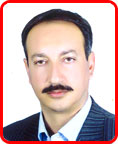 |
Member of Kermanshah Chamber council of representatives, in 7th period Abadan Palayesh Alborz Co. managing director Exemplary unit for standard, industry and export in the province |
|
Gholamreza Amiri Member of the board of representatives Phone : +988338228131 and +988338228141 E - mail : gh.amiri@ krccima.ir |
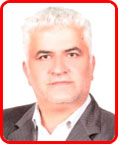 |
Representative, vice - president, and speaker for the people in the 1st, 2nd, and 3rd periods of Kermanshah City Islamic Council Founder of Novin foreign language school |
|
Shahriar bavandpour Chleh Member of the board of representatives Phone : +988338228131 and +988338228141 E - mail : sh.bavandpour@ krccima.ir |
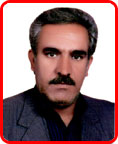 |
Founder and managing director of chickpea cultivators cooperative 2073 since 2001 Three terms member of the board of directors of Kermanshah live cattle exporters union Founder and board member of Iran National Chickpea Council |
|
Borhan Heidari Member of the board of representatives Phone : +988338228131 and +988338228141 E - mail : b.heidari@ krccima.ir |
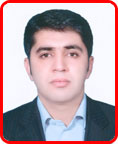 |
Vice - President of the Iran National Chickpea Council Kermanshah Chamber Trade Commission consultant Member of Organic Society, and Livestock Exporters Union |
|
Ebrahim Khamisi Member of the Board of representatives Phone : +988338228131 and +988338228141 E - mail : e.khamisi@ krccima.ir |
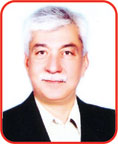 |
Member of Kermanshah Chamber council of representatives for 3 consecutive terms Fanarsazi Gharb Co. managing director Member of Iran - Iraq Joint Chamber |
|
Abdolreza Zardoee Member of the Board of representatives Phone : +988338228131 and +988338228141 E - mail : a.zardoee@ krccima.ir |
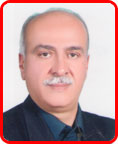 |
Over 40 years business experience Vice - President and member of the board of directors of the 5th and 6th period of Kermanshah Chamber Member of the joint Iran - Iraq room |
|
Reza Salim Sasani Member of the board of representatives Phone : +988338228131 and +988338228141 E - mail : r.sasani@ krccima.ir |
 |
Kermanshah International Exhibition managing director President of the Kermanshah Chamber of Guilds Vice - president Kermanshah Chamber of Commerce |
|
Heydar Kadivar Member of the board of representatives Phone : +988338253482 E - mail : h.kadivar@ krccima.ir |
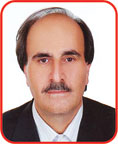 |
Country’s West Wheat Farmers Co. managing director Membership for 2 terms in Kermanshah & Iran Chamber council of representatives Model Farmer for many consecutive terms Member of Iran Chamber Commission of Agriculture |
|
Naser Morady Member of the board of representatives Phone : +988338228131 and +988338228141 E - mail : This email address is being protected from spambots. You need JavaScript enabled to view it. |
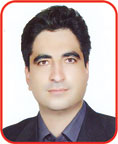 |
Member of the council of representatives, and chairman of trade commission of Kermanshah Chamber President of the Iran National Chickpea Council Chairman of the cereals sellers guild of the province President of Kia Arg System Co. Secretary of Kermanshah Province Association of Entrepreneurs |
Kermanshah through the Passage of Time
The historical province of Kermanshah, like other parts of our ancient country, has preserved relics of the eras of greatness of Iran in the midst of its mountains and Plains.
Unlike other parts of Iran that have become provisional habitats, this province has always been occupied without interruption through different periods of the history. The archaeological evidence show that the region had been one of the first habitats of early humans and one of the most important centers of population in the Central Zagros Mountains. All human life stages and periods ranging from stone age to pre-historic civilizations and to large government formation have followed their course in these boundaries.
Such that the Bistoon Hunters Cave reveals interesting points about the history of human life in Paleolithic era in Iran. Thereafter, about 9 thousand years ago due to warming climate, humans left the cave and settled at one place and that development, resulted in agriculture, animal husbandry, and consequently, village life. Undoubtedly the first villages have formed in this province such as Ganjdare Hersin, Gakieh, and Tapesarab. Prehistoric men of Ganjdare, were among the first who invented pottery in Iran and were inclined towards industrial activities.
In the fourth millennium B.C., Kermanshah Province was one of the most important commercial centers and its merchants and businessmen traded and exchanged goods with Shush and Mesopotamia merchants.The presence of Bazaars in Kangavar’s Goodin and Islamabad’s Chghagavaneh that are reminder of those times, are proof of this claim.
Based on Babylonian / Assyrian tablets, inhabitants of Zagros were Lulube and Gothic tribes.
These vigilant and brave men, in order to protect this land, have always been at war with Mesopotamians and have been victorious too, and since then the Valleys of Zagros have been center of Iranian / Mesopotamian civilizations for centuries and eventually the Iranian element dominate the area with its civilization. The existence of reliefs by these tribes in Sarpolzahab affirms this, which is one of the oldest in the Middle East.
Kermanshah area, due to common borders with Assyria, was continuously exposed to invasion of powerful government of Assyria and kings such as Tiklat-Pal-Isri, Shalmaneser V, have invaded Kermanshah boundaries frequently. The tablets remaining from Assyrian times, mention realms like Parswa, Zakruti, Madiha, and Nishani. Nishani was a region covering modern Mahidasht and Kermanshah, which were famous for their horse breeding and keeping pastures. Assyrian Yearbooks mention a city called Elipee that historians have pinpointed it between Hamadan and Kermanshah and some other historians have located it in the current site of Kermanshah.
With the formation of the states, this realm had also become one of the Medians centers and valuable relics like Goodin Fortress has remained from that era.
In that period Kermanshah was one of the vital Iranian highways and the road from Ekbatan to Babylon passed through this province.
In Achaemenes period, a royal road that connected Ekbatan to Babylon, added to the prosperity of the region. After the extinction of Achaemenes, during Solouki era, parts of Kermanshah like Bistoon and Dinor accommodated Greek colonies but soon Parthians defeated them and settled in the region. Parthians’ reliefs in Bistoon are witness to this development. In that period, Bistoon was a major centers of Parthian age.
In the course of Sassanid period, Kermanshah Province was more prosperous than any of the other ages. This region has always been of interest to Sassanid kings and due to proximity to Tisfon, their capital; they spent the summer in summer resorts around the province. Islamic historians have frequently mentioned that Khosro I had built several palaces around Taq Bostan and had hosted kings like Chinese Emperor, Indian king, Roman Cesar, etc.
By construction of cities such as Halvan in this side, and the city building policies of Sassanid kings at the country’s west side that led to foundation of Kermanshah, this region gained more credit and Sassanid kings, by constructing bridges on the rivers and public places, brought about welfare and economic prosperity for the people of the region.
With the defeat of the Sassanid by Muslims, the people of this region, unlike some other areas, were among the first communities that accepted the holy religion of Islam and started to promote it.
Abdullah Bin Omar Mosque in Rijab is one of the oldest early Islamic mosques and its is a reminder of that era. Tombs of faithful companions of the Prophet that helped him in wars like Abudajane are in Rijab. In Abbasid regime, Kermanshah was one of the four major cities of Jebal States. Harunolrashid, the famous Abbasid Caliph was especially concerned about this, as a result, tourists have mentioned the beauty and prosperity of the city.
Ibn Hoghl and Estakhri describe Kermanshah as a beautiful township with abundant water and trees. Moghadasi included this city along with Hamadan, Ray, and Isfahan in the list of 4 famous cities of Jebal State.
In the third century Hegira, Kermanshah was inside Safarian government territory. In the 4th century, a small Kurdish dynasty called Hasnoyeh gained independence in western states. The founder of this dynasty was and its most famous figure, ruled for nearly fifty years, and choose the big Sarmaj Castle as the seat of his government. In 441, Sultan Toghrol The Seljuk, sent a 100 thousand strong army and after 4 years conquered the castle.
In the sixth century, Sultan Sanjar The Seljuk, put Kermanshah and its surroundings under the rule of his nephew, Sloeiman Shah aka. Yve.
In the seventh century, Kermanshah, like Khorasan and other areas of Iran, was heavily damaged by Mongol invasion of Iran, such that Holaco’s troops committed tragic murder and looting in this area, but at the end of Ilkhani era, in Abusaid government, this area is again a matter of concern such that during his reign, the city of Sultanieh Chamchamal was built near the Bistoon. At that time, as Hamdollah Mostoufi noted, Kermanshahan was one of the 16 states of Kurdistan.
In the 9th century and early 10th century, Ottoman Turks invaded Kermanshah. In that time, Hercin and Mahidasht were emirates but there is no sign of Kermanshahan.
At the time of the Saffavids, Kermanshahan enjoyed importance and prestige. In the period of the reign of Shah Tahmasb I, a government called Kalhor, and in Shah Safi’s period, a government called Songhor & Kalhor was established in the region and were transferred to Zangeneh Lords (Khans). In fact, this is the time of the re-organization of Kermanshah and the beginning of the formation of the current Kermanshah Province.
Concurrent with the Afghan attack and the fall of Isfahan, Kermanshahan faced Ottoman aggression again and once again started to become a ruin. In the Zand era, the Zangeneh Lords (Khans) and Kermanshah residents, did not accept the Karim Khan rule at first, therefore Kermanshah faced siege and destruction for a while. During the rule of Qajar dynasty, Kermanshah was deemed important. Fathali Shah, in 1221 Lunar Hegira Calendar, appointed one of his sons called Mohammad Ali Mirzaye Dolatshah to this position as Iraq borderline keeper and also annexed the Khuzestan State to his territory and in fact, in this time, Kermanshah became an equipped military base against the Ottoman State.
Introducing the Townships in Kermanshah Province
Kermanshah
Islamabad Gharb
Ghasr Shirin
Kangavar
Sahneh
Hercin
Javanrood
Salas Babajani
Sarpolzahab
Ravansar
Dalahoo
Songhor
Paveh